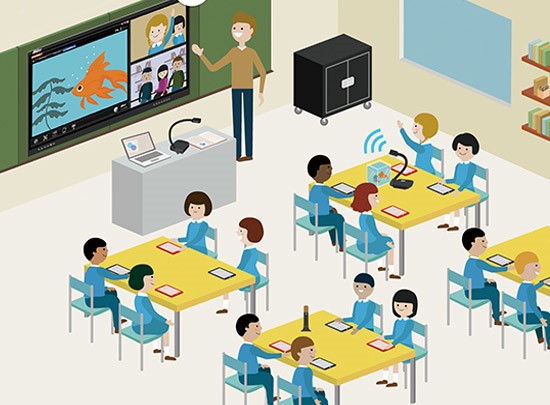As technology continues to revolutionize every aspect of our lives, it’s no surprise that the field of education is also undergoing a digital transformation. From online learning platforms to virtual classrooms, educators are exploring innovative ways to engage students and enhance learning outcomes. In this blog post, we will dive into the exciting world of Digital Pedagogies and explore how they are shaping the future of education. Join us as we uncover the potential benefits and challenges of incorporating technology into teaching practices, and discover what lies ahead for the classroom of tomorrow.
The Role of Teachers in a Digitized Classroom:
In this fast-paced digital age, the role of teachers has evolved significantly. With the increasing use of technology and digital tools in classrooms, teachers are no longer seen as the sole source of knowledge. Instead, they have taken on a more diverse and dynamic role in facilitating learning.
The Impact of Technology on Learning and Student Engagement
Technology has become an integral part of our daily lives and it has significantly impacted the education system. With the constant advancements in technology, digital tools and resources have transformed traditional teaching methods into more interactive and engaging experiences for students. As a result, the impact of technology on learning and student engagement cannot be ignored.
Conclusion: Embracing the Potential of Digital Education for the Future
Digital education has revolutionized the way we think about teaching and learning. With advancements in technology, it has become an integral part of our society and is constantly evolving to meet the demands of a rapidly changing world. In this blog post, we have explored various digital pedagogies that have emerged as effective tools for enhancing education. From online learning platforms to virtual classrooms, digital education offers endless possibilities for creating engaging and personalized learning experiences.
One of the most significant benefits of digital education is its accessibility. It has opened up doors for learners from all backgrounds to access quality education without any geographical or financial constraints. This inclusivity has empowered individuals who may not have had access to traditional forms of education, such as those living in remote areas or with physical disabilities.
Furthermore, digital pedagogies offer flexibility and convenience for both students and teachers. With online learning platforms, students can learn at their own pace and schedule, while teachers can create customized lesson plans tailored to individual students’ needs. This allows for a more personalized approach to education that caters to different learning styles and abilities.
Another advantage of digital education is its ability to keep pace with the ever-changing job market. As technology continues to evolve, so do the skills required in the workforce. Digital education equips students with essential 21st-century skills such as adaptability, critical thinking, problem-solving, and collaboration – all necessary for success in today’s world.
Moreover, Digital Education fosters creativity and innovation among students through interactive tools such as augmented reality (AR) and virtual reality (VR). These immersive technologies provide hands-on learning experiences that engage students in ways traditional methods cannot replicate.

